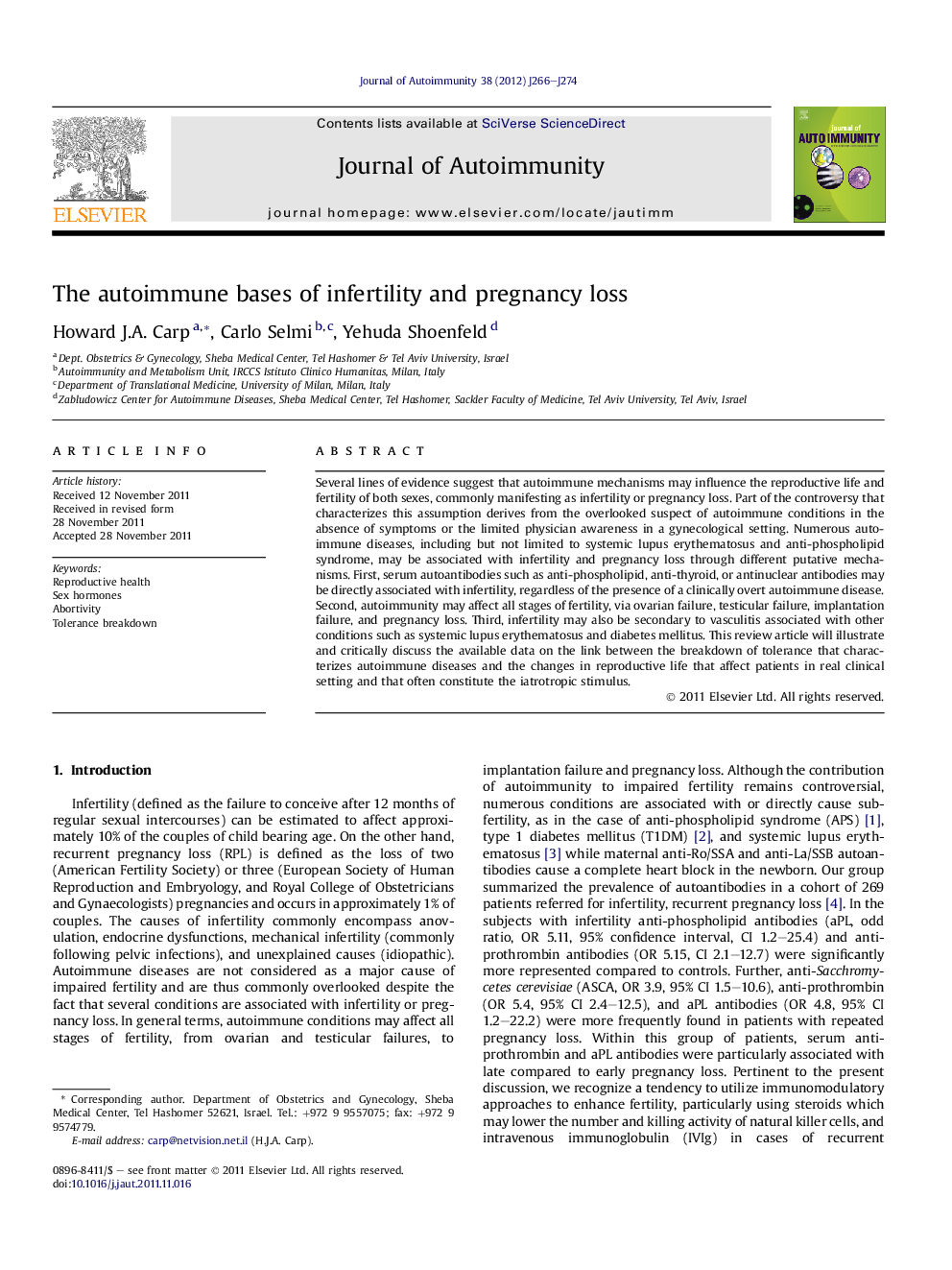| Article ID | Journal | Published Year | Pages | File Type |
|---|---|---|---|---|
| 6119415 | Journal of Autoimmunity | 2012 | 9 Pages |
Abstract
Several lines of evidence suggest that autoimmune mechanisms may influence the reproductive life and fertility of both sexes, commonly manifesting as infertility or pregnancy loss. Part of the controversy that characterizes this assumption derives from the overlooked suspect of autoimmune conditions in the absence of symptoms or the limited physician awareness in a gynecological setting. Numerous autoimmune diseases, including but not limited to systemic lupus erythematosus and anti-phospholipid syndrome, may be associated with infertility and pregnancy loss through different putative mechanisms. First, serum autoantibodies such as anti-phospholipid, anti-thyroid, or antinuclear antibodies may be directly associated with infertility, regardless of the presence of a clinically overt autoimmune disease. Second, autoimmunity may affect all stages of fertility, via ovarian failure, testicular failure, implantation failure, and pregnancy loss. Third, infertility may also be secondary to vasculitis associated with other conditions such as systemic lupus erythematosus and diabetes mellitus. This review article will illustrate and critically discuss the available data on the link between the breakdown of tolerance that characterizes autoimmune diseases and the changes in reproductive life that affect patients in real clinical setting and that often constitute the iatrotropic stimulus.
Related Topics
Life Sciences
Immunology and Microbiology
Immunology
Authors
Howard J.A. Carp, Carlo Selmi, Yehuda Shoenfeld,
